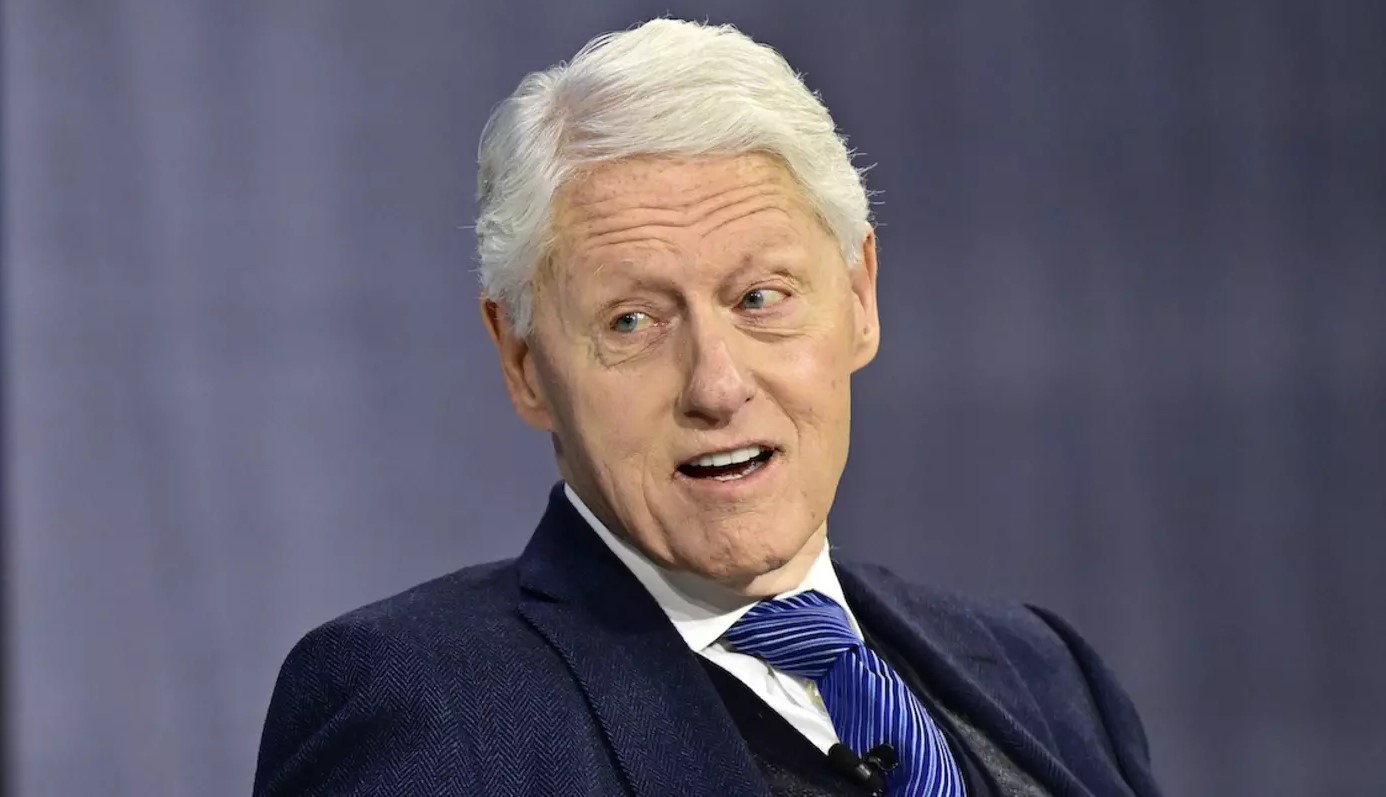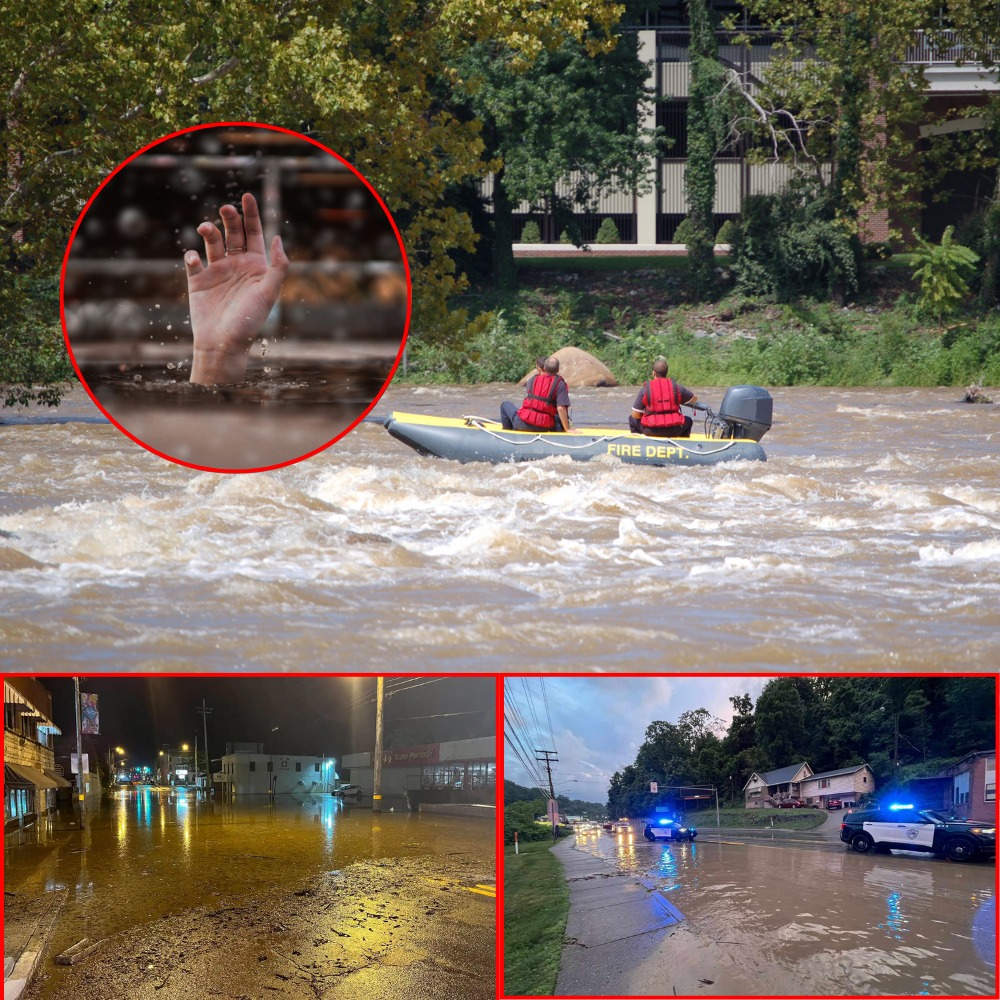The air was unusually still that afternoon. No political fireworks, no rally cries, no celebratory flags waving overhead. Yet television networks across the country scrambled to go live. Anchors paused their usual segments with solemn expressions, the kind reserved for moments of national gravity. All eyes turned toward a single podium where a familiar figure, no longer clad in the armor of presidency, stood in quiet vulnerability.
As he walked on stage, one could sense that this was not just another public appearance. His gait was slower, his expression more distant, and the well-known charisma that once animated campaign trails across America had yielded to something far more fragile.
He stood behind the podium—not as a political leader, not as a strategist, not even as a commentator—but as a man who had something deeply personal to share. In his hand was a folded piece of paper. In his eyes, the weight of decades. In his voice, a tremble rarely heard.
“My fellow Americans,” he began softly. “Today, I come before you not to speak about policy, politics, or history. I come to speak from the heart—as a father, a grandfather, and a citizen.
The world paused.
What followed wasn’t just an announcement—it was a revelation. A glimpse into the private struggle of a man whose name had become synonymous with resilience and reinvention. While he had faced political storms, personal controversies, and public redemption, this moment was different. This was not about surviving a news cycle. It was about confronting time itself.
An Unexpected Revelation
There had been whispers in recent months. Former aides had noted his increasing quietness, the occasional pause when recalling names or events, and the visible weariness etched into his face. But nothing had prepared the public for this moment.
He unfolded the paper and continued.
“I recently received news that has shaken me to my core,” he said, pausing to steady his breath. “After undergoing several rounds of testing and consultations, my doctors have informed me that I am in the early stages of a progressive neurological disorder—specifically, early-onset Alzheimer’s disease.”
The words seemed to echo through the room. Though whispered, they thundered.
For many Americans, Clinton was more than a former president. He was a constant in the background of their lives—a voice that accompanied them through the economic prosperity of the ’90s, a personality that weathered scandal with resilience, a public figure whose marriage, controversies, and legacy became threads in the tapestry of modern American history.
And now, he stood before them as a man grappling with the painful knowledge of impending cognitive decline.
Facing the Future with Courage
“I’ve spent a great deal of my life speaking to crowds,” Clinton continued, his voice quivering. “But nothing could have prepared me to speak these words.”
Behind him stood his wife, former Secretary of State Hillary Clinton. Her hands clasped tightly, her eyes red, but composed. The room was silent—not out of politeness, but because no one could find the words to fill the emotional vacuum that had just opened.
“I’ve always believed in transparency and truth,” Clinton said. “That’s why I wanted to speak directly to you—not through press releases or filtered statements. Because if I’ve learned anything in public service, it’s that the truth—however difficult—is what sets us free.”
In that moment, Clinton wasn’t simply sharing a diagnosis. He was breaking open a national conversation about aging, illness, and mortality. His diagnosis became more than a personal tragedy—it was a mirror for millions of Americans facing similar fates in silence.
The Human Cost of a National Crisis
Alzheimer’s disease, one of the most feared diagnoses in modern medicine, affects nearly seven million Americans. It doesn’t discriminate between wealth, fame, or intellect. It robs individuals of their memories, their relationships, their independence.
Clinton’s admission cast a spotlight on an issue that had too often remained in the shadows. “There are so many walking this path,” he said, his tone now both sorrowful and defiant. “Spouses who don’t recognize their partners, parents who forget their children, individuals who one day no longer recognize the face in the mirror.”
He expressed a desire not to retreat from public life entirely, but to redirect his energy. “With the time I have,” he said, “I want to be useful. I want to amplify the voices of caregivers, patients, and researchers. I want to be part of the solution—not just another name on a chart.”
Hillary Clinton’s Silent Strength
Throughout his speech, one presence remained unwavering—Hillary. Theirs had been a complex marriage, the subject of intense public scrutiny, political calculation, and undeniable endurance. But in that moment, the political past melted away. What remained was a woman standing beside the man she had loved, fought with, and stood by for decades.
“She’s been my rock,” Clinton said, his voice thick with emotion. “And now more than ever, I know I’ll need her strength.”
He also mentioned his daughter, Chelsea, and his grandchildren, noting how their presence had brought renewed meaning to his later years. “I want them to remember me not just as the man I was, but as someone who never stopped fighting for what mattered.”
A Call to Action
Clinton’s announcement was not just a revelation—it was a rallying cry.
In the hours that followed, advocacy organizations saw unprecedented engagement. Alzheimer’s foundations reported record web traffic. Donations poured in. Medical forums lit up with stories, shared experiences, and messages of support.
President Joe Biden, a longtime colleague and friend of Clinton’s, addressed the nation the following day.
“Bill Clinton has always had the heart of a lion,” Biden said. “And today, he showed us that courage is not the absence of fear—but the decision to face it head-on.”
Political opponents and allies alike praised the former president. In a rare bipartisan moment, leaders from across the aisle offered tributes, stories, and pledges to increase funding for Alzheimer’s research.
The Public Response
Social media platforms became virtual memorials not just to Clinton’s career, but to the millions affected by neurological diseases. Hashtags like #ClintonCourage and #MemoryMatters trended for days.
But the most powerful tributes didn’t come from celebrities or politicians—they came from ordinary people. A mother in Kansas shared a photo of her husband who could no longer remember her name. A college student in Ohio posted about his grandmother who could recite Shakespeare but had forgotten his birthday. A nurse in Florida shared the emotional toll of watching patients fade day by day.
Each post echoed the same message: “We see you. We understand. Thank you.”
Looking Ahead
Though Clinton made it clear that he would scale back on public appearances, he announced plans to launch an initiative focused on raising awareness and funding for Alzheimer’s research. Dubbed the “Living Memory Project,” the campaign would focus on three pillars: early detection, caregiver support, and funding innovative treatments.
“We may not be able to stop the clock,” Clinton said, “but we can change the experience of those affected. We can bring dignity to the process. We can give people hope.”
He ended his speech not with a farewell, but with a promise: “As long as I am able, I will speak. I will fight. And I will love.”
Then, in the quietest moment of the day, he stepped back. Hillary reached out, and together they walked offstage.
A Legacy Redefined
Bill Clinton’s political legacy has always been complex—a mixture of brilliant policymaking, personal missteps, and enduring popularity. But in sharing his diagnosis so publicly, he may have carved a new space for himself in the American narrative.
No longer just the 42nd president, Clinton is now a symbol of what it means to face life’s final challenges with openness, dignity, and resolve.
He didn’t ask for pity. He didn’t retreat into silence. Instead, he offered his story as a lighthouse for those navigating similar storms.
In doing so, Bill Clinton reminded the world that leadership is not just about strength, but about vulnerability. And that sometimes, the most powerful thing a public figure can do is to stand still, speak the truth, and say, “This is me—scared, uncertain, but not defeated.



